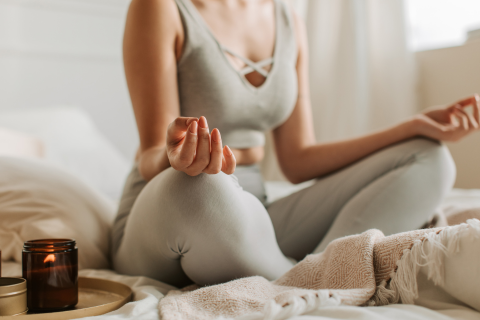 I do love being out in nature; hiking, snowshoeing, walking (not running!), kayaking, riding bikes. To me, those things are not “exercise.” I’m exploring nature, doing what I love, and being active. In my younger years, I never exercised for the sake of it. I danced, did martial arts, and practiced and taught self-defense. But exercising for the sake of it was not and is not my thing. Did I mention I HATE to exercise? Just ask my trainer, Moonbird Mighty! The only thing I enjoy about exercising is finishing it.
I do love being out in nature; hiking, snowshoeing, walking (not running!), kayaking, riding bikes. To me, those things are not “exercise.” I’m exploring nature, doing what I love, and being active. In my younger years, I never exercised for the sake of it. I danced, did martial arts, and practiced and taught self-defense. But exercising for the sake of it was not and is not my thing. Did I mention I HATE to exercise? Just ask my trainer, Moonbird Mighty! The only thing I enjoy about exercising is finishing it.
For people like me, it’s really hard to exercise. All the emphasis on its importance doesn’t make it any easier. It actually makes me feel worse. When thinking about wellness and exercise, there are many ways a person can stay active. You don’t need to be a Peloton superstar or marathon runner to be in good shape.
The CDC recommendation for exercise is “150 minutes of moderate-intensity physical activity and two days of muscle-strengthening activity” each week. How can you exercise in a way that works for you? You might want to ask yourself these questions:
- What do I love to do, and how does exercising help me do those things?
- What is one small and achievable thing I can do in the next week that would make me feel like I am making progress? We reach our big goals by reaching small but significant goals over and over again.
Try some of these tips!
Walk in nature!
If you’re stuck in a rut and don’t know where to start your fitness journey, try walking outdoors. Leisure walking in natural environments has been shown to distract our attention from negative thoughts and bring us with peace with our surroundings. Combined with overcoming physical terrain and mental challenges, leisure walking can result in a sense of achievement. And who knows, you might wake up every day with a sense of purpose and flourish in something new.
Accountability partnering
Minutes can feel like hours when you’re grueling away on the treadmill or even forcing yourself into sweats at 7:00 am! But it doesn’t have to feel like an eternity. Having an accountability partner while exercising keeps you in check and encourages you to keep going. Find a confidant who understands your goals, and most importantly, both supports and challenges you. You don’t have to carry the burden alone!
If time is of the essence, consider getting convenient help when you can’t grab your partner in a jiff. There are great apps to download on your phone that keep you accountable, such as Nike Training Club, which features live streams and workout scheduling, and Motion, where you can share your goals with friends and family. Whether through a screen or a person, a partner can help keep you on track.
 Mind over matter
Mind over matter
Be careful of what you think when you’re exercising. One study shows that how one perceives exercise effects physical change, and in this case, being told that physical labor is good exercise resulted in decreased weight, blood pressure, and more. In other words, believing in your workout can only help make it more effective. Remember to prioritize your health and wellness.
Sometimes our biggest enemy is our own thoughts. Even though exercise yields healthy outcomes, and we know we should do it, our minds can get the better of us. Along with training our bodies, we can train our thoughts, too. When you’re stumbling after that tree pose or stressing over the imperfect plank, it can be easy to feel the pull of toxic positivity. You can be upset! Keep in mind that it’s human to feel frustration and experience a rollercoaster of emotions. What matters is how we use those thoughts to fuel our next steps.
The power of consistency
Exercise should be a sprint, not a marathon (ha!). The United States Army even suggests not starting out with intense workouts but instead short and consistent exercises. With time, you can gradually increase the length and extremity of your workout. So start out simple! Give yourself ten minutes each day to take that walk, lift that dumbbell, or dip your toes into the pool. A week will pass by, then two, and then a full month of dedication, and before you know it, you will find yourself happily adding more to your routine. A little truly goes a long way.
Contributors Statement: Melanie Garcia (mgarcia02@wesleyan.edu) contributed to the research and writing of this blog. Melanie is an undergraduate student majoring in English and is interested in women’s health and domestic violence advocacy.
